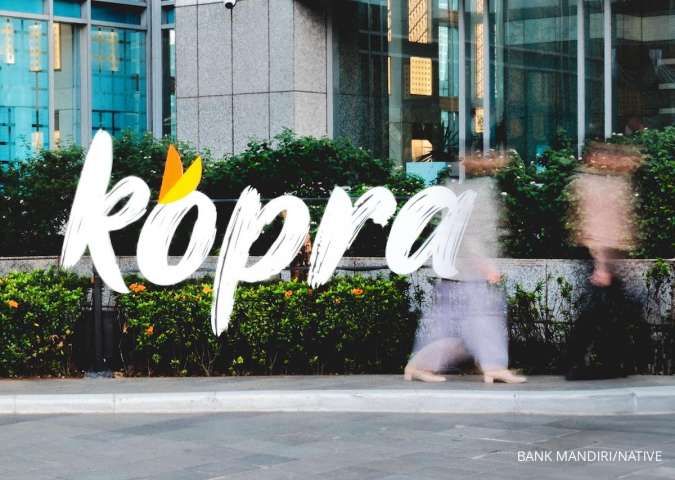JAKARTA. State-owned pharmaceutical company PT Kimia Farma is planning to expand its business reach into Vietnam in an attempt to anticipate movement in the Southeast Asian market while at the same time maintaining its presence in the domestic market by establishing a joint venture with a Chinese company. Kimia Farma president director Syamsul Arifin said that the company would soon begin negotiations with various Vietnamese companies. “I will go to Vietnam next week to talk about what forms of business we might undertake there. From Vietnam, we will also be able to cover Cambodia, Laos and Myanmar,” Syamsul said earlier this week.The expansion to Vietnam will deepen Kimia Farma’s presence in other countries after it had previously entered the Malaysian market. Kimia Farma announced that it had cooperated with Malaysian company Averroes to build three drug stores there last year. “It is very difficult to enter other countries’ pharmaceutical markets because drugs are commodities under tight regulations — regulations that differ from one country to another. Entrance to foreign countries will be eased by cooperation with local companies or the establishment of factories,” Syamsul said.According to Syamsul, Kimia Farma’s exports consist of only about 10 percent of the company’s total sales.“Most of our exported products are raw materials, which have no regulatory barriers, such as Kina and Iodium,” Syamsul said.Despite ambitions to expand to other countries, Kimia Farma intends to continue expanding domestically. After the recent announcement of Kimia Farma’s plans to establish a chain of hospitals in the country, the company is preparing to seal a deal with Chinese Tianjin King York Co. Ltd.“We will sign a deal on a joint venture with Tianjin next Monday. The joint venture will operate a factory producing medication for injections,” Syamsul said.He declined to reveal the company’s ownership in the joint venture, but said that Kimia Farma would hold a majority stake.According to Syamsul, the factory will need investment of about Rp 300 billion and will be able to produces up to 300 million doses of injection medication per year.“The factory will be built on Kimia Farma’s land in Cikarang, West Java. We will use about 3 hectares of land out of a total of 12 hectares available for development in Cikarang. The remaining area will be used to build other new factories,” Syamsul said. The injection medicine factory will require one year for construction, Syamsul added.“During construction, we will train our human resources by sending them to China to help them learn how to operate the factory. All of the technology for the factory will be from China,” Syamsul said. The factory for injection medicines is also aimed at securing supply for Kimia Farma’s hospitals. The company recently announced that it would build a hospital in Jakarta and another five in areas across the country. The firm has also expressed intentions to acquire state-owned hospitals.
Kimia Farma to expand to Vietnam, work with China
JAKARTA. State-owned pharmaceutical company PT Kimia Farma is planning to expand its business reach into Vietnam in an attempt to anticipate movement in the Southeast Asian market while at the same time maintaining its presence in the domestic market by establishing a joint venture with a Chinese company. Kimia Farma president director Syamsul Arifin said that the company would soon begin negotiations with various Vietnamese companies. “I will go to Vietnam next week to talk about what forms of business we might undertake there. From Vietnam, we will also be able to cover Cambodia, Laos and Myanmar,” Syamsul said earlier this week.The expansion to Vietnam will deepen Kimia Farma’s presence in other countries after it had previously entered the Malaysian market. Kimia Farma announced that it had cooperated with Malaysian company Averroes to build three drug stores there last year. “It is very difficult to enter other countries’ pharmaceutical markets because drugs are commodities under tight regulations — regulations that differ from one country to another. Entrance to foreign countries will be eased by cooperation with local companies or the establishment of factories,” Syamsul said.According to Syamsul, Kimia Farma’s exports consist of only about 10 percent of the company’s total sales.“Most of our exported products are raw materials, which have no regulatory barriers, such as Kina and Iodium,” Syamsul said.Despite ambitions to expand to other countries, Kimia Farma intends to continue expanding domestically. After the recent announcement of Kimia Farma’s plans to establish a chain of hospitals in the country, the company is preparing to seal a deal with Chinese Tianjin King York Co. Ltd.“We will sign a deal on a joint venture with Tianjin next Monday. The joint venture will operate a factory producing medication for injections,” Syamsul said.He declined to reveal the company’s ownership in the joint venture, but said that Kimia Farma would hold a majority stake.According to Syamsul, the factory will need investment of about Rp 300 billion and will be able to produces up to 300 million doses of injection medication per year.“The factory will be built on Kimia Farma’s land in Cikarang, West Java. We will use about 3 hectares of land out of a total of 12 hectares available for development in Cikarang. The remaining area will be used to build other new factories,” Syamsul said. The injection medicine factory will require one year for construction, Syamsul added.“During construction, we will train our human resources by sending them to China to help them learn how to operate the factory. All of the technology for the factory will be from China,” Syamsul said. The factory for injection medicines is also aimed at securing supply for Kimia Farma’s hospitals. The company recently announced that it would build a hospital in Jakarta and another five in areas across the country. The firm has also expressed intentions to acquire state-owned hospitals.

